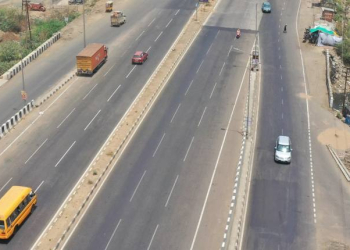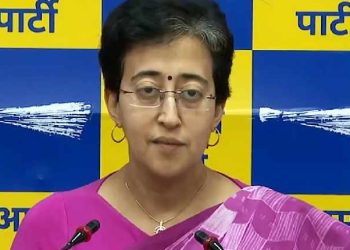New Delhi: A hilly tract of Western Ghats near the scenic and proposed eco-tourism spot Muthachipara in Kerala’s Kozhikode district is slowly losing its calm, and the residents are undergoing harrowing experiences of blasts and landslide threats from a stone quarry in the locality.
At Porali hills, a land of settler farmers, more than 53 home buildings, a school building, and a Church is affected due to the blasting activities by the private quarry operator, Porali Quarry Action Council constituted to oppose the quarry project, told IANS.
Action council leader Iype Vadakkethadam, comparing the fragile region to Kavalappara in neighbouring Malappuram district, where more than a dozen people died due to a landslide, said if something happens in this landslide-prone region, the loss will be huge due to the dense population.
“The quarry is causing landslide threat as it is operating on a hillside. Geologically, the quarry is situated at the foot of a big hill of which a major portion is a rock. A large quantity of rock has already been removed from the bottom of this hill structure and countless daily blasts make the hill vulnerable to landslides,” he said.
The loud noise of heavy machines like jackhammers and excavators along with sudden shocking blasting sounds has spoiled the peaceful living atmosphere, he said.
While talking about the social, economic, and environmental impacts of the quarry menace, an award-winning green activist from the district, Prof T. Shobhindran blamed the nexus between quarry owners, hardcore criminals, and politicians. Further, he stressed the need to act against quarrying in Kerala, a state that faces floods, landslides, and rapid climate changes.
National Green Tribunal, court orders, and quarries
The plea of Porali Quarry Action Council before the NGT said the quarry is abetting Reserved Forest and adversely affecting the flora and fauna in the area.
As per studies conducted about landslides happening in similar landscapes, the rainwater will saturate the soil and later the readily weakened hill structure will slide down, devastating the area and lives. A minor landslide has already occurred in the area recently. Pollution of freshwater resources and resulting water scarcity is another problem, it pointed out.
The petitioner stated that not only rock stones are extracted from the Earth’s surface, but a large quantity of topsoil is also removed which is loosely heaped in the boundary of the quarry owner’s land. It later spreads to shallow areas through rainwater streams from the hill, spoiling freshwater sources like ponds and natural streams, which are sources of water for daily needs and farming.
Considering the plea, the green court directed Kerala State Pollution Control Board, State Environmental Impact Assessment Authority (SEIAA), and District Magistrate, Kozhikode district to act on the matter. In the order dated March 30, the tribunal asked the Committee to meet within two weeks and furnish its factual and action taken report within two months.
Earlier in December last year, the NGT had constituted a seven-member joint committee to study the impact of blasting in various stone quarry sites in Kerala with nonel detonation technology at distances of 50 m, 75 m, 100 m, 125 m, 150 m, 200 m and 250 m.
Nonel is a shock tube detonator designed to initiate explosions, generally for the purpose of demolition of buildings and for use in the blasting of rock in mines and quarries.
In November last year, the Supreme Court had held that the quarries in the state should be at least 200 metres away from residential areas agreeing with an earlier NGT order.
Notably, the Kerala government had reduced the minimum distance for quarrying to 50 m in 2016, a move that claimed to boost the development works in the state.
(IANS)

















